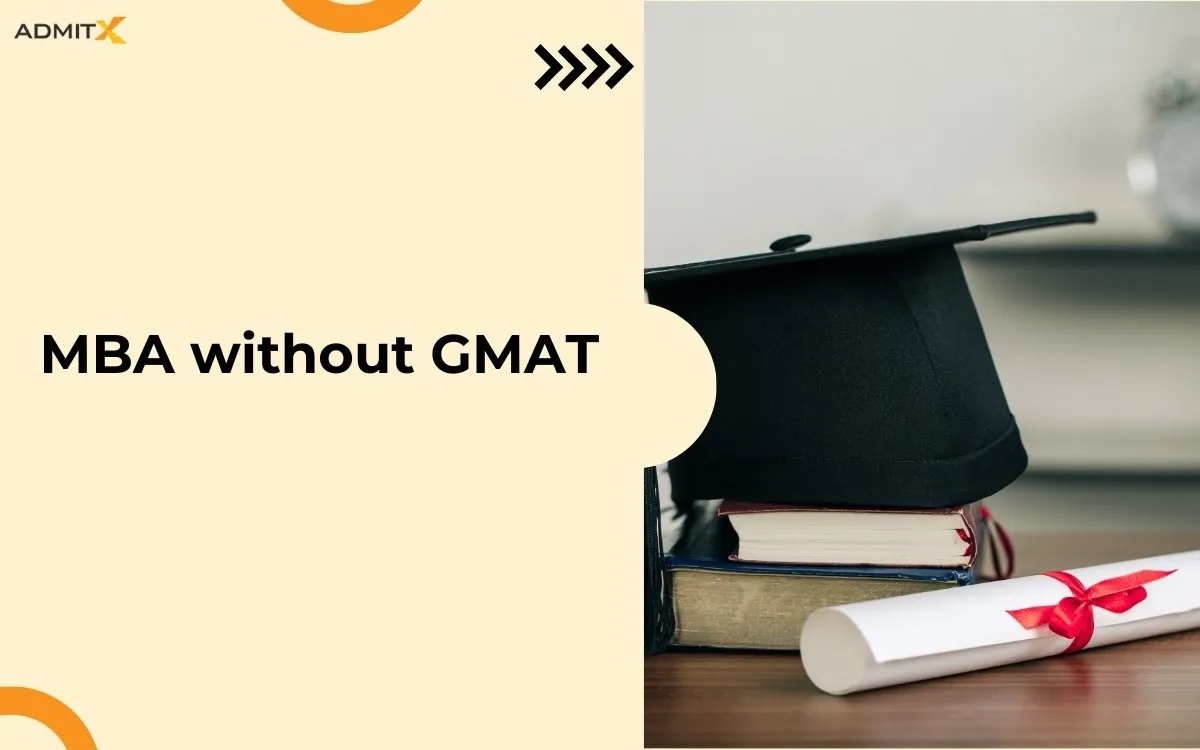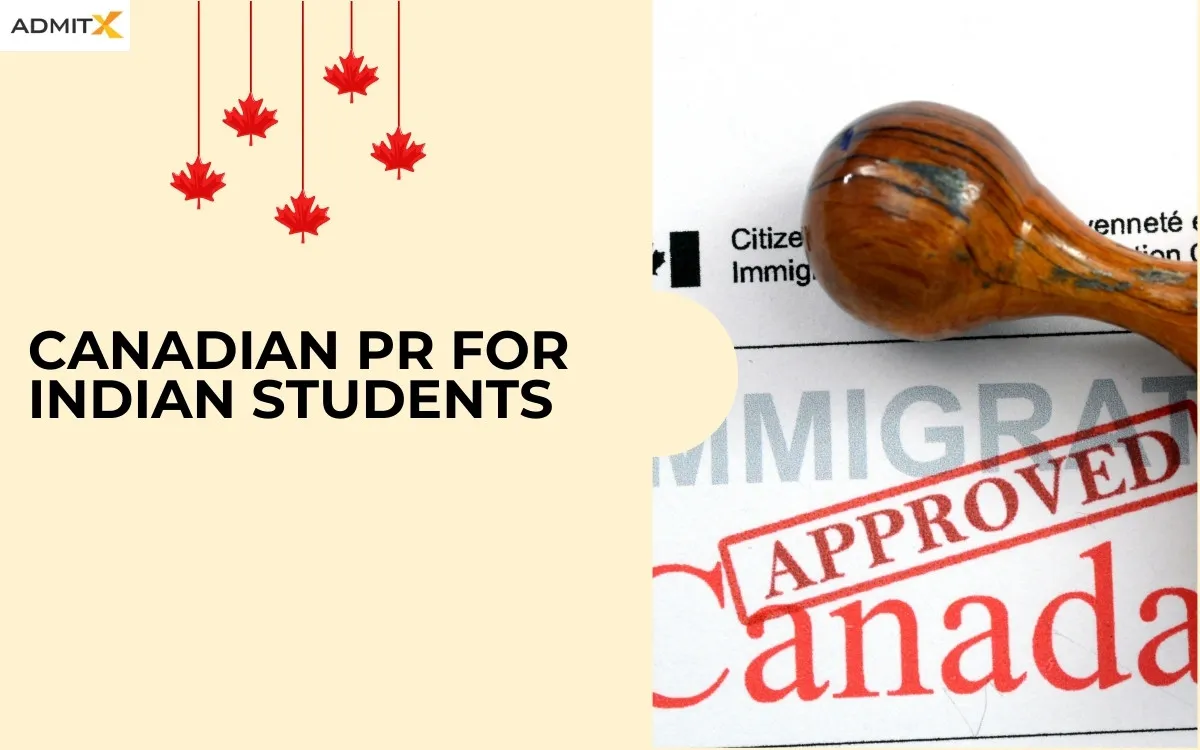
MBA Without GMAT: Top Courses, Universities and Requirements
In this blog post, you’ll get to know about the MBA programs that don’t require the GMAT. We’ll explore the advantages of pursuing an MBA without GMAT, discuss the eligibility criteria and application process for such programs, and highlight some of the top institutions offering a GMAT waiver.
Whether you’re a non-traditional applicant, a working professional with limited time for test preparation, or simply someone who believes their skills and experiences speak louder than a test score, this guide will provide valuable insights into your MBA journey.
Top MBA Programs That Don’t Require GMAT
Here are some best universities for an MBA without GMAT:
| University | Courses |
|---|---|
| Boston University - Questrom School of Business | MBA, MS in Management Studies |
| University of North Carolina at Chapel Hill - Kenan-Flagler Business School | MBA, Executive MBA, PhD in Business Administration |
| University of Southern California - Marshall School of Business | MBA, Executive MBA, Master of Science in Business Analytics |
| Northwestern University - Kellogg School of Management | MBA, Executive MBA, MS in Management Studies |
| University of Virginia - Darden School of Business | MBA, Executive MBA, PhD in Business Administration |
| Massachusetts Institute of Technology - Sloan School of Management | MBA, Executive MBA, Master of Finance |
| Harvard University - Harvard Business School | MBA, Executive Education Programs |
| University of Chicago - Booth School of Business | MBA, Executive MBA, PhD in Business |
Benefits of MBA programs that don’t require GMAT
Here are the list of benefits for MBA without GMAT:
- Time and Cost Efficiency: Preparing for and taking the GMAT can be a significant time and financial investment. By eliminating this requirement, students can allocate more resources to other aspects of their application and career development.
- Diverse Student Body: GMAT-waived programs often attract a more diverse pool of applicants, leading to a richer learning experience and a wider range of perspectives in the classroom.
- Holistic Evaluation: These programs prioritise a holistic review of applicants, considering factors such as work experience, leadership potential, and academic achievements. This allows for a more nuanced assessment of a candidate’s potential.
- Greater Accessibility: By removing the GMAT barrier, these programs make top-tier business education more accessible to a wider range of individuals, including those from non-traditional backgrounds or with limited test-taking experience.
Key Requirements for GMAT-Waiver MBA Programs
MBA admissions without GMAT score is quite unusual but many top-tier business schools now offer GMAT waiver options. To be competitive for these programs, applicants typically need to demonstrate excellence in the following areas:
Academic Background and English Proficiency
- Strong Academic Record: A high GPA in undergraduate studies, particularly in quantitative subjects, is often a prerequisite.
- English Language Proficiency: A high score on standardised English language tests like TOEFL (typically 90-100) or IELTS (usually 6.5 or higher) is essential to ensure effective communication in the classroom and professional settings.
Work Experience and Leadership Potential
- Relevant Work Experience: Several years of relevant work experience, particularly in leadership roles, can significantly enhance an applicant’s profile.
- Strong Recommendations: Letters of recommendation from supervisors or colleagues who can attest to the applicant’s skills, work ethic, and leadership potential are crucial.
Personal Statements and Essays
- Compelling Narrative: Well-written personal statements and essays that showcase unique experiences, career goals, and reasons for pursuing an MBA can make a strong impression.
Alternative Assessments
- University-Specific Exams: Some universities have their own entrance exams that can serve as an alternative to the GMAT.
- Portfolio Submissions: In certain cases, a strong portfolio demonstrating exceptional skills, projects, or creative work can be considered as a substitute for the GMAT.
Strengthening Your Application for MBA Without GMAT
While GMAT waivers offer a more accessible path to top business schools, it’s essential to craft a compelling application that highlights your unique strengths and potential. Here are some strategies to strengthen your career growth with an MBA without GMAT:
- Maintain a Strong GPA: A solid academic record, especially in quantitative subjects, is crucial.
- Seek Relevant Coursework: Electives in business, finance, or related fields can demonstrate your interest and aptitude.
- Consider a Master’s Degree: A postgraduate degree can enhance your academic profile and potentially waive the GMAT requirement.
- Seek Mentorship: Connect with experienced professionals who can provide guidance and support your career aspirations.
- Tell Your Story: Share your unique journey, highlighting personal and professional challenges and how you overcame them.
- Connect the Dots: Clearly articulate how your past experiences align with your future goals and why an MBA is the right next step.
- Proofread Meticulously: Ensure your essays are free of errors and convey your ideas effectively.
- Practise Common Questions: Prepare for common interview questions, such as your career goals, strengths, weaknesses, and reasons for choosing the program.
- Showcase Your Personality: Be genuine and enthusiastic, and let your personality shine through.
Key Takeaways By AdmitX
For working professionals, pursuing an MBA without the GMAT offers a more flexible and efficient pathway to career advancement. This approach allows them to leverage their existing professional experience and skills to achieve their educational and career goals.
If you’re considering MBA admissions without the GMAT score and aspire to study at your dream university, consider consulting with AdmitX. By starting your application process early, you can maximise your chances of securing admission and embarking on a transformative educational journey.
FAQs
Are GMAT-waived programs easier to get into?
No, it is not easy to get into GMAT-waived programs.
Do GMAT-waived programs offer the same quality?
Absolutely! These programs typically boast the same esteemed faculty, resources, and curriculum as their GMAT-required counterparts. They hold the same accreditations and pave the way for similar career advancements.
How can I find out about GMAT-waived programs?
You can find out about the GMAT waiver programs through program websites, direct contact or through online resources like MBA.com.
How can I prepare for a GMAT waiver program?
To prepare for a GMAT-waiver program, you can focus on academic and professional development, get a deeper understanding of the program’s curriculum and faculty to personalise your application effectively.
Which programs don't require a GMAT score?
MBA, MS in Management Studies, PhD in Business Administration are some of the courses which don’t require a GMAT score.
If you are an aspirant looking to study at your dream university, book an appointment with AdmitX today and start your applications early to avail yourself of all the benefits.







